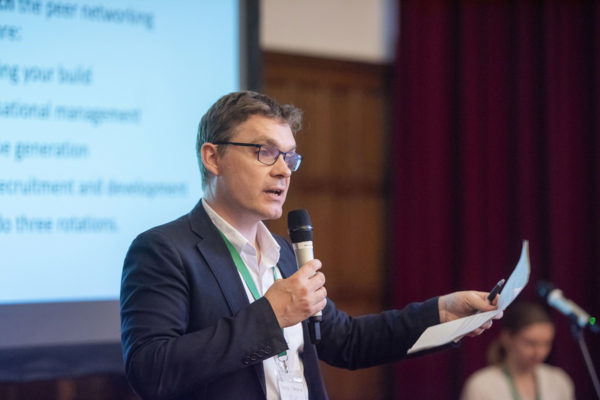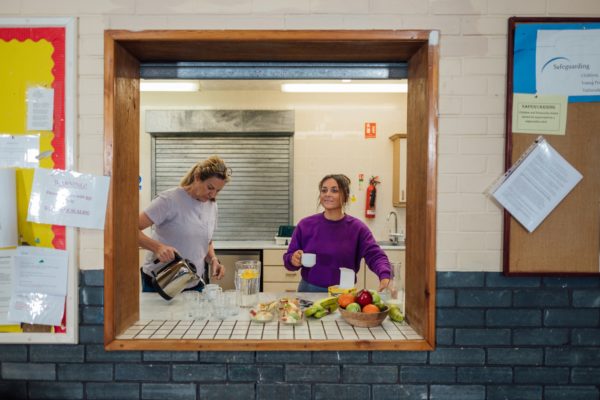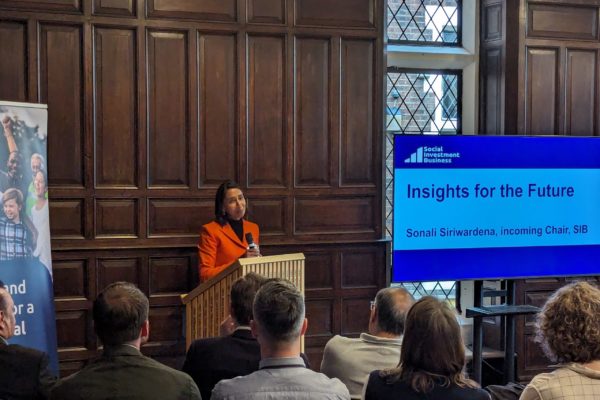Director of Learning and Influence Genevieve Maitland Hudson explores why reviving public spending as a collective commitment is the best tool we have.
27 January 2023
Investing in the collective good can guide us out of our state of anxiety
At an event at the Blavatnik School of Government in mid-January a group of policy experts, former politicians and their advisers, researchers and practitioners came together to consider a shift in policy thinking away from efficiency and towards prevention and resilience. We started with New Public Management. In policy circles, chin stroking about decision-making in Whitehall has a tendency to trip on the concealed step of NPM and make it responsible for more than it deserves. It is, though, just an itchy symptom of a more widespread economic disease that has its roots in Austria and was spread by a group of patients zero (Hayek, von Mises, Schumpeter and Drucker) exiled by the rise of Nazism. Their commitment to splitting financial activity from state responsibility is what Raymond Geuss would call a world view. It has a history and a theory and its proponents have done a good job of rallying followers to their cause.
But alternatives are possible. In fact alternatives initially gained more traction than neoliberalism, which is why we have post-war social democracies in Europe at all. Social democracy’s attraction amid the death and destruction of the late 1940s, was that it provided security through shared responsibility and pooled resources. We can call it resilience, but a move away from strict efficiency in public spending and towards spending for longer term social ends rather than those of immediate productivity and global competitiveness is drawing from that same wellspring.
In a 2009 lecture Tony Judt summarised the condition of social democracy as he saw it then: “We have lived through an era of stability, certainty and the illusion of indefinite economic improvement. But all that is now behind us. For the foreseeable future we shall be as economically insecure as we are culturally uncertain.” His response to this new era of discomfort was a grim recommendation to pursue a “social democracy of fear” that turned its back on the language of progress and encouraged instead a keen knowledge of, and sharp commitment to, the achievements of the twentieth century’s postwar reformers. “Imperfect improvements upon unsatisfactory circumstances are the best that we can hope for, and probably all we should seek.” He concluded.
Judt’s lecture was given fifteen years ago. The effects of the financial crash of 2008 had just started to bite. The EU and IMF were only beginning to understand the seriousness of the risk of economic collapse in Spain and Greece. The true picture of the Greek debt was still unclear. Austerity had not yet begun in the UK, which was seven years away from the Brexit vote. If Judt saw continual economic improvement as an illusion then, how much more illusory does it seem now! But even if he was right about the problem, is his remedy best communicated in the language of fear?
The question of narrative was one we asked in Oxford. A case was made for communicating the ideas of resilience – of building in tolerance, redundancy and a capacity to bounce back alongside a commitment to maintenance – in the language of efficiency. But if you do that, you aren’t really challenging the premises of efficiency talk, you are maintaining them. Maintaining them, ironically, in exactly the kind of way that supports their resilience. If the premises are wrong for our present time, then a tinkered fix is bad policy-making.
The alternative is to be altogether more thoroughgoing and to use a language, and develop policies, that revive public spending as collective commitment, not because it is the only tool we have, but because it is the best tool we have. Economic insecurity and cultural uncertainty require us to live in solidarity with one another, and the kind of public spending that treats us all as valued citizens and promotes equality is the best means to that end. Seen in this light, resilience is not much of an improvement on efficiency in describing the kind of policies we need. We need our policymakers, instead, to be generous.




